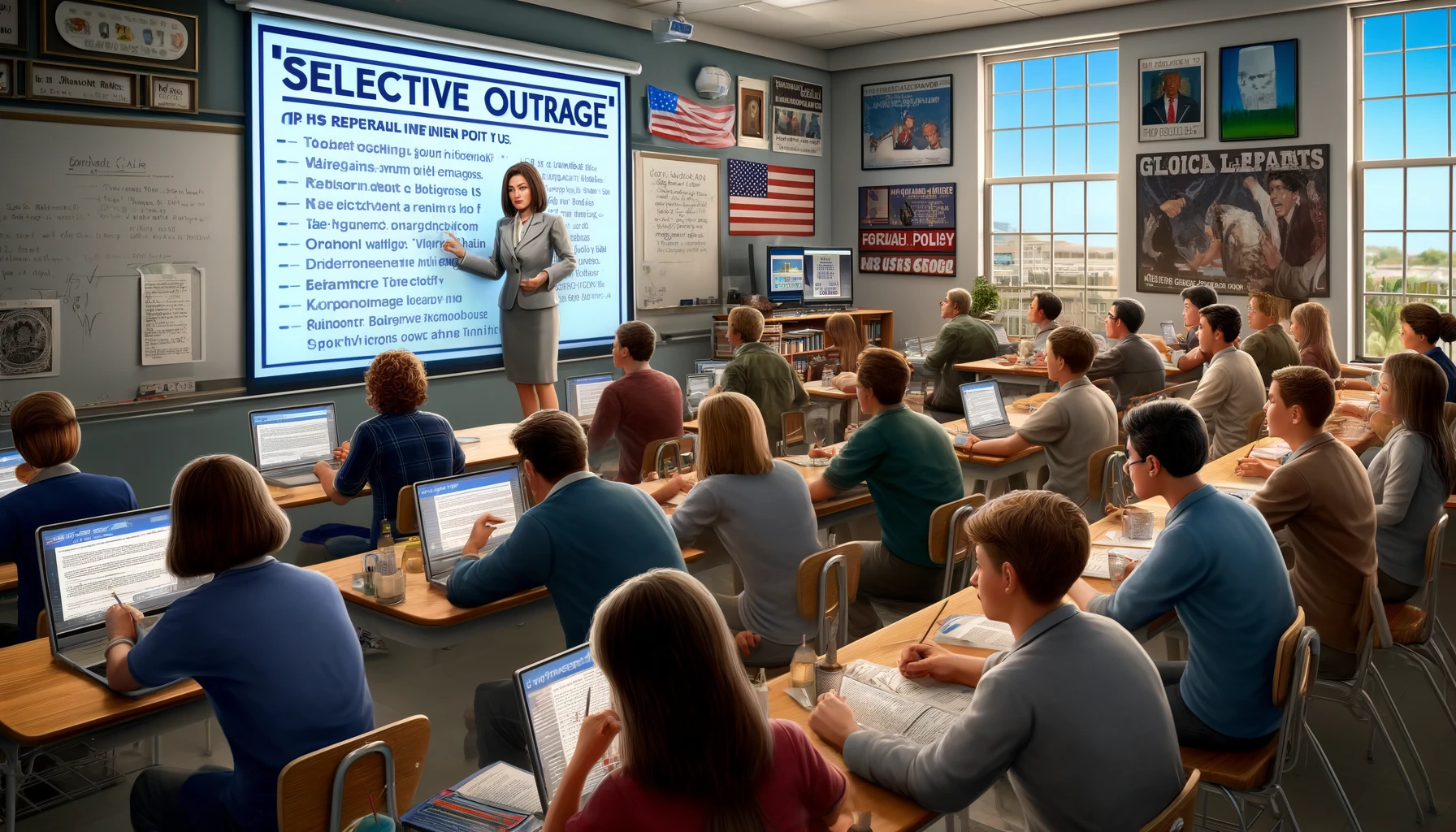In a satirical nod to the often inconsistent nature of international relations, the United States has purportedly introduced a new educational curriculum titled “Selective Outrage: The Art of Moral Ambiguity in Foreign Policy.” The program aims to educate future generations on the nuanced art of expressing indignation, support, or apathy based on strategic interests rather than consistent moral principles.
“This innovative curriculum draws inspiration from decades of U.S. foreign policy,” announced a fictional spokesperson for the Department of Education, April Fules. “Students will learn through real-life case studies where the U.S. showed remarkable flexibility in its moral compass, depending on the geopolitical context.”
The course outline suggests that students will be introduced to concepts such as “The Friend-Enemy Dichotomy,” where they’ll explore how an international actor can be considered a valued ally in one scenario and a condemnable adversary in another, based purely on current political or economic interests.
Another module, “Economic Interests vs. Human Rights: A Balancing Act,” will challenge students to weigh the importance of human rights against the pursuit of economic gains, using historical instances where economic interests have led to a softening stance on human rights violations by trading partners.
“The curriculum is designed to foster critical thinking and debate among students,” Fules continued. “For example, they’ll engage in spirited discussions on why certain conflicts garner 24/7 news coverage and global outrage, while others are met with a collective shrug.”
Interactive lessons will include role-playing exercises where students must defend their stance on a fictional conflict, only to be given a new set of economic or strategic interests halfway through the debate, forcing them to pivot and justify a completely opposite viewpoint.
The announcement of the “Selective Outrage” curriculum has been met with a mix of humor and criticism, with supporters lauding it as a brutally honest reflection of realpolitik, while detractors decry it as cynical indoctrination of the youth. “We’re preparing our students for the real world,” Fules argued. “A world where the moral high ground is often the hill you choose to die on, depending on the weather.”
Educators are provided with a “Moral Flexibility” toolkit, complete with a “Choose Your Outrage” spinning wheel and a set of flashcards featuring various countries, detailing their strategic importance to the U.S. and current human rights records. Students will learn to quickly adjust their moral stances as they “spin the wheel of interests.”
As this satirical curriculum makes its rounds across social media and dinner tables, it sparks a broader conversation about the complexities of foreign policy and the often glaring disconnect between proclaimed values and actions on the international stage. Whether it will lead to a generation of more informed and critically thinking citizens or merely cynical realists remains to be seen.

